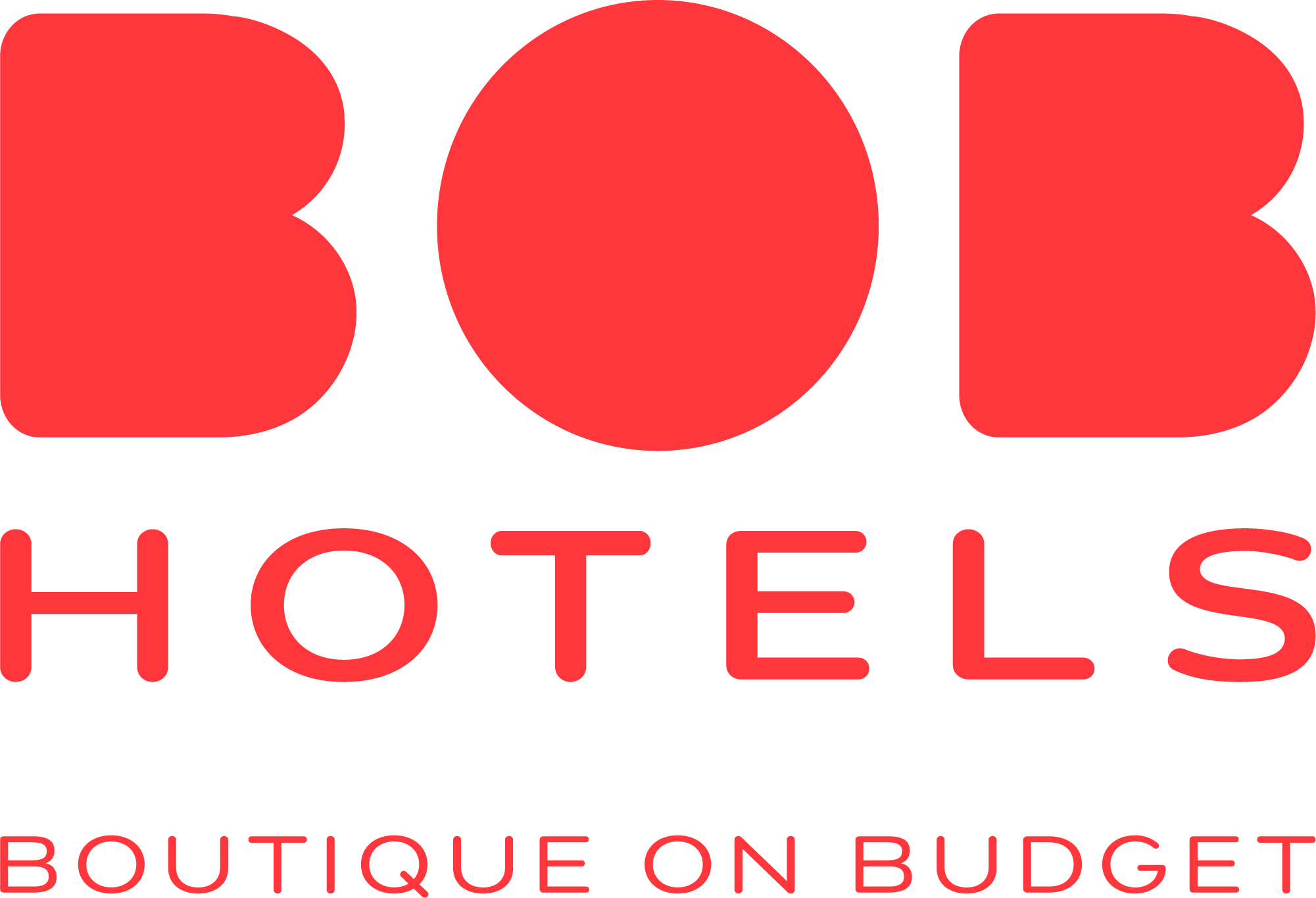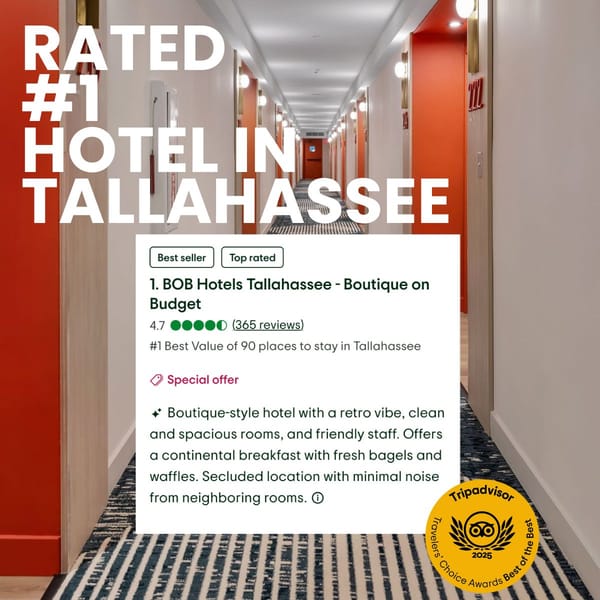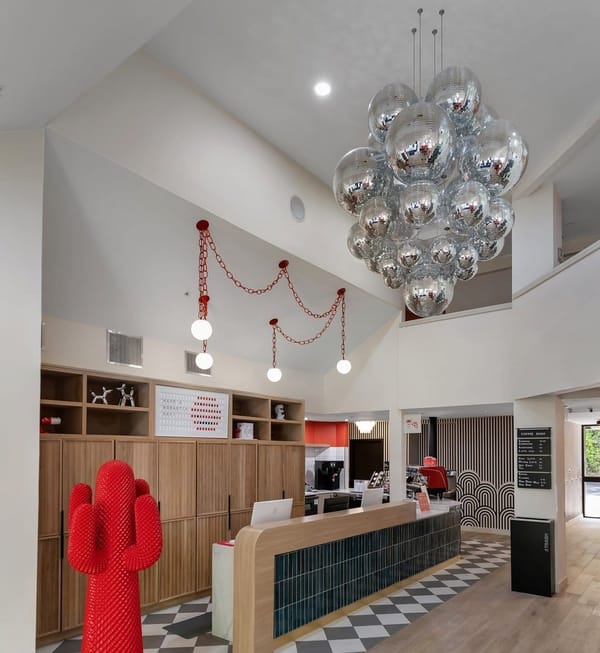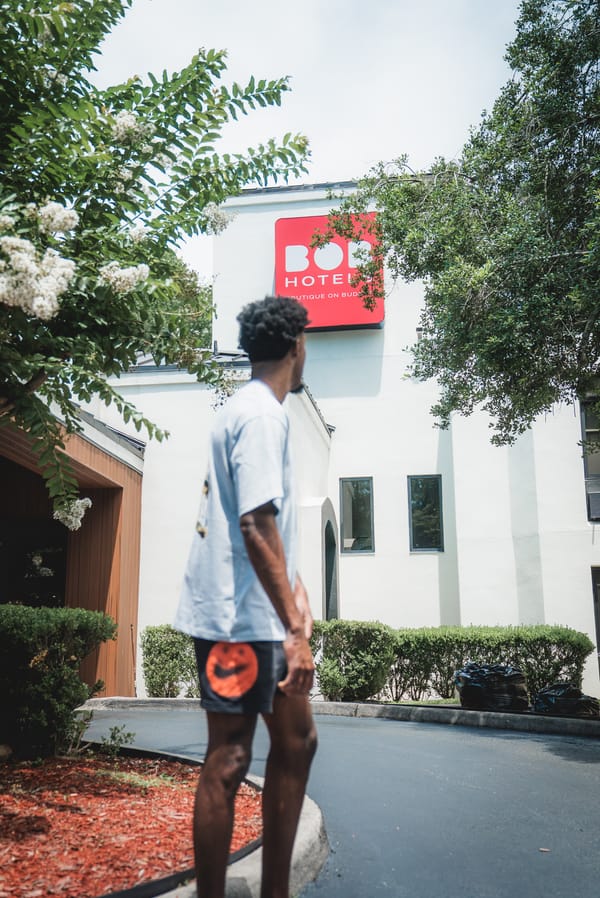How Hotels Collaborate with University Departments
Explore how hotels and universities collaborate for mutual benefits, enhancing student learning and optimizing event planning.

Hotels and universities can work together to create benefits for both sides. Hotels get reliable bookings for academic events, while universities access professional facilities and offer students hands-on learning opportunities. Here's how these partnerships work:
- Event Planning: Hotels provide venues and expertise for conferences, graduations, and more.
- Student Training: Hospitality students gain real-world experience through internships and job shadowing.
- Financial Benefits: Universities save costs on maintaining facilities, and hotels fill rooms during off-peak times.
- Community Engagement: Partnerships strengthen ties with local communities and industries.
Example: BOB Hotels in Tallahassee collaborates with local universities, offering event spaces, discounted rates, and training programs for students.
Want to build a similar partnership? Start with clear communication, align goals, and create customized collaboration plans.
9 Quick Tips for Better Event Planning Collaboration
Advantages of Hotel-University Partnerships
Hotel-university partnerships offer a range of benefits, from improving event planning to providing learning opportunities and boosting financial outcomes.
Better Event Coordination
Hotels simplify university event planning by offering professional venues and expertise in logistics. This ensures seamless execution of academic events like conferences and graduations. For example, the collaboration between Ithaka Hospitality Partners and Auburn University highlights how hotels can deliver consistently high-quality events without requiring universities to maintain permanent facilities.
These partnerships don't just handle logistics - they also open doors for student learning experiences.
Engaging Students
These collaborations give students valuable, hands-on opportunities like internships and event planning roles, while hotels benefit from access to a pool of emerging talent. Here's how both sides gain:
| Learning Opportunity | Benefits for Students | Benefits for Hotels |
|---|---|---|
| Real-World Experience | Develops skills in operations and management | Access to motivated and trained individuals |
| Hands-On Training | Builds expertise in event planning and management | Brings fresh ideas and perspectives |
In addition to supporting student growth, these partnerships also deliver financial advantages.
Increasing Revenue for Both
Financially, both hotels and universities see benefits. Hotels enjoy reliable bookings during academic events, while universities access professional facilities without the costs of owning or maintaining them. By scheduling events during hotels' off-peak periods, both parties maximize the use of resources and profits.
Take Middle Tennessee State University's Tourism and Hospitality Management program as an example. Their approach combines academic goals with practical business strategies, generating revenue through event planning while benefiting students and the partnering hotels [2]. This creates a win-win situation for everyone involved.
Steps to Build Successful Partnerships
Building partnerships that thrive requires a clear plan, starting with identifying the right collaborators and creating solutions that meet their specific needs.
Choosing the Right University Partners
Hotels should focus on universities with strong hospitality or event management programs that align with their offerings. It's important to weigh short-term priorities against long-term objectives during the selection process.
Here are some factors to consider when evaluating potential university partners:
| Selection Criteria | Importance | Strategic Value |
|---|---|---|
| Proximity and Calendar Alignment | Crucial for smooth coordination and resource optimization | Cuts logistics costs and boosts revenue potential |
| Academic Programs | Focus on hospitality and event management | Opens doors for student involvement and engagement |
| Resource Compatibility | Ensures facilities fit university needs | Supports successful event execution |
Designing Custom Collaboration Packages
Collaboration packages should cater to the specific needs of academic institutions while ensuring profitability for hotels.
Take the partnership between Auburn University's Horst Schulze School of Hospitality Management and Ithaka Hospitality Partners as an example. This collaboration offers a variety of benefits:
"The partnership includes job shadowing opportunities, professional placement of graduates, and support for program fundraising efforts, while providing hands-on learning experiences in hotel management, restaurant management, event management, and culinary science" [1].
Using Public-Private Partnerships
Public-private partnerships provide a structured way to build hotel-university collaborations, especially for on-campus projects. These arrangements go beyond typical vendor relationships by fostering integrated learning environments and generating revenue.
To make these partnerships work, hotels and universities should co-create frameworks that address:
- Operational Integration: Aligning hotel services with university objectives.
- Financial Planning: Building sustainable revenue models.
- Academic Integration: Offering practical learning opportunities tied to educational goals.
Routine evaluations and updates to the partnership terms help ensure ongoing success and mutual benefits. These strategies pave the way for impactful collaborations, as seen in the examples discussed in the following section.
Case Study: BOB Hotels Tallahassee and University Collaboration
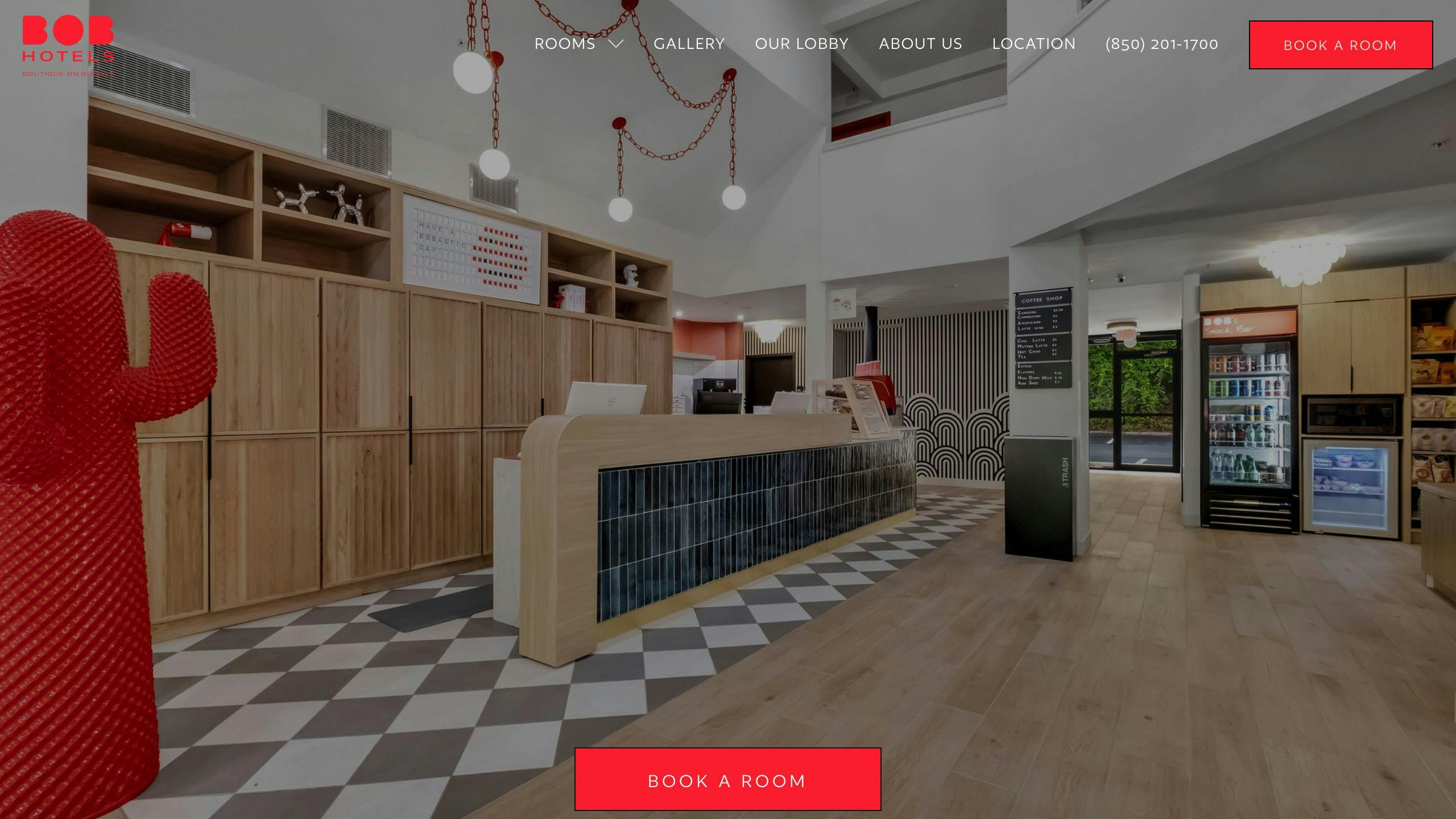
BOB Hotels' Location and Amenities
BOB Hotels Tallahassee is conveniently located near Florida State University (FSU) and Florida A&M University, offering boutique accommodations with a modern touch.
The property includes several spaces designed for university-related events:
| Space | Capacity | Ideal For |
|---|---|---|
| Café Area | 30-40 people | Department meetings, interviews |
| Cozy Lobby | 20-25 people | Small seminars, networking |
| Pool Area | 40-50 people | Receptions, gatherings |
| Bar Space | 35-45 people | Mixers, alumni events |
Services for Universities
BOB Hotels provides customized services tailored to the needs of university departments, such as:
- Special rates for university guests
- Meeting rooms with modern tech setups
- Long-term stay options for faculty and researchers
- Event planning assistance for academic gatherings
Future Expansion and Partnerships
Founder Janis Krums is leading BOB Hotels toward national franchising by 2025. The plan is to replicate the Tallahassee model while keeping a focus on:
- Formalized university partnership programs
- Advanced technology integration
- Strategic location selection
- Flexible and multi-functional spaces
This approach aims to meet the specific needs of local academic communities while maintaining the standards that have driven success in Tallahassee.
BOB Hotels' collaboration with universities serves as a blueprint for other boutique hotels looking to build stronger ties with academic institutions.
Best Practices for Hotel-University Collaborations
Clear Communication
Having structured communication channels is key to successful hotel-university partnerships. Regular meetings and discussions can help keep everything on track. Here's a simple framework:
| Communication Type | Frequency | Purpose |
|---|---|---|
| Strategic Planning Meetings | Quarterly | Discuss long-term goals and evaluate the partnership |
| Event Coordination Calls | Monthly | Plan upcoming events and manage logistics |
| Feedback Sessions | Bi-annual | Review service quality and identify improvements |
Flexible Event Planning
Hotels need to cater to a variety of university events while maintaining high standards of service. Adapting to different needs is crucial.
Some important flexibility factors include:
- Adjustable room setups to fit events like lectures, banquets, or conferences
- Scalable catering options to meet varying group sizes and dietary requirements
- Flexible scheduling to align with academic calendars
- Hybrid-ready spaces equipped with modern tech for in-person and virtual events
New Collaboration Methods
Strengthening hotel-university partnerships often means thinking outside the box. Consider these collaboration ideas:
- Offering internship programs for students in hotel operations
- Partnering on research projects focused on hospitality trends
- Hosting workshops where hotel professionals and university faculty share insights
- Creating mentorship programs to connect students with industry experts
These approaches not only bring academic and industry perspectives together but also provide practical experiences for students. From supporting research initiatives to contributing to curriculum planning, these collaborations help shape the next generation of hospitality professionals while building lasting relationships between hotels and universities.
Conclusion: The Role of Hotel-University Partnerships
Hotel-university partnerships offer a chance for mutual growth and stronger community connections. These relationships extend far beyond renting out spaces - they help shape education and professional development in meaningful ways.
The success of these partnerships hinges on aligning goals, using resources effectively, and making a positive impact on the community. A great example is BOB Hotels Tallahassee, which demonstrates how focusing on shared objectives and community engagement can lead to thriving collaborations. These core elements, highlighted throughout this discussion, are essential for building effective and lasting partnerships.
Looking ahead, the potential lies in crafting creative solutions that benefit everyone involved. By blending academic knowledge with hands-on industry expertise, these collaborations create a dynamic environment for learning and advancement. Hotels that actively engage with universities shift from being mere service providers to becoming key educational allies, strengthening their community ties and building enduring business relationships.
For hotels exploring these partnerships, the steps are straightforward: identify universities that align with your goals, design tailored collaboration plans, and keep communication channels open. The rewards of these relationships go beyond short-term profits, offering long-term benefits for both the institutions and the communities they serve.
These partnerships are more than just business deals - they’re commitments to the future of education and professional growth in the hospitality industry. As the sector continues to evolve, hotels that embrace these opportunities will be better equipped to meet the changing needs of academic institutions and the broader market.
